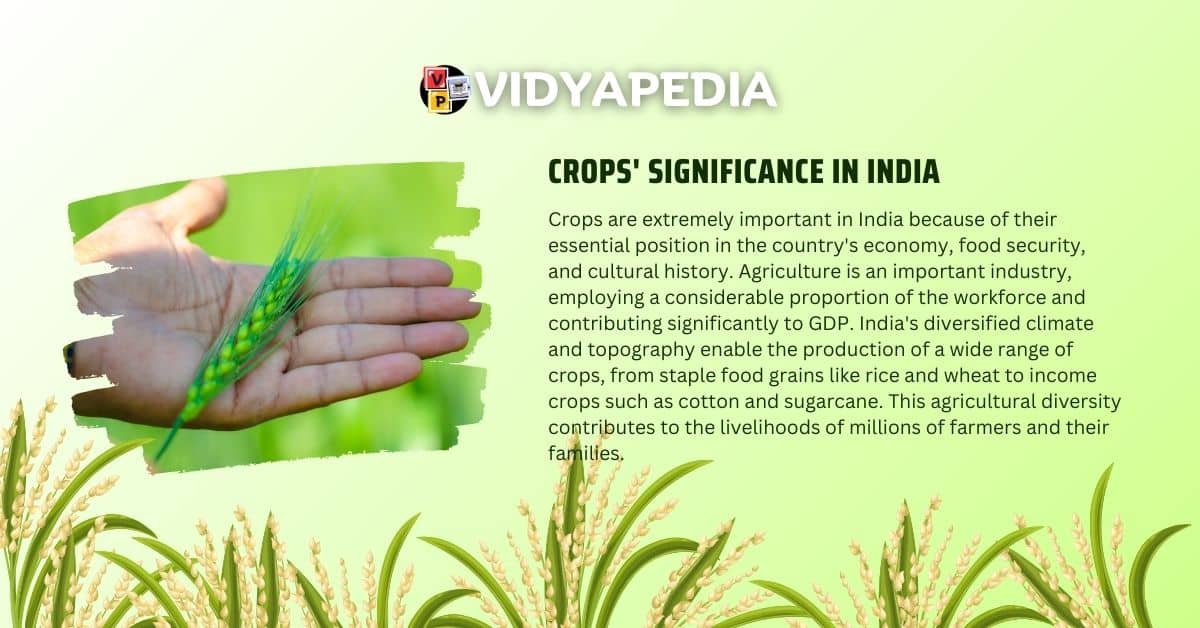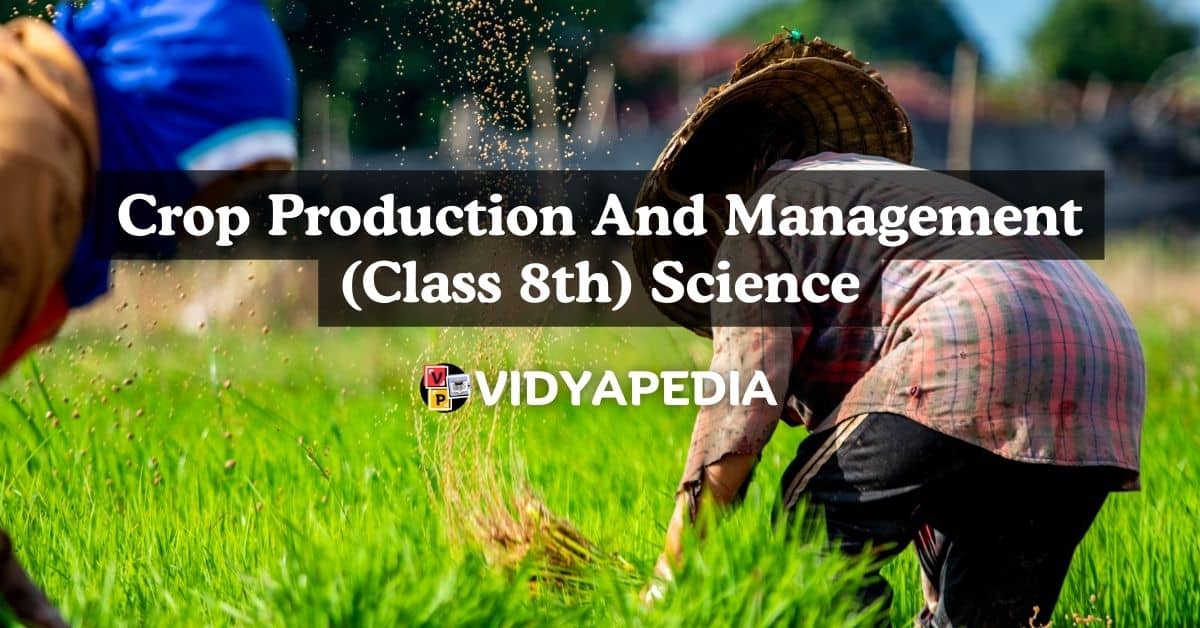Introduction
Understanding crop production and management is essential for students. It is an essential component of their science education, focusing on the processes and steps involved in crop cultivation and agricultural practice management. This article dives into the numerous components of crop production and management, providing a thorough review that is consistent with the science curriculum.

What are crops?
Crops are plants that are grown on a large scale for a variety of purposes, including food, fiber, healthcare products, and more. These plants are produced in fields or gardens and collected for their valued components, which include grains, fruits, vegetables, and leaves. Crops are a key component of agriculture, serving as the primary source of food and raw materials for many different sectors. Crops include wheat, rice, corn, cotton, and tomatoes.
Crops’ significance in India

Crops are extremely important in India because of their essential position in the country’s economy, food security, and cultural history. Agriculture is an important industry, employing a considerable proportion of the workforce and contributing significantly to GDP. India’s diversified climate and topography enable the production of a wide range of crops, from staple food grains like rice and wheat to income crops such as cotton and sugarcane. This agricultural diversity contributes to the livelihoods of millions of farmers and their families.
Furthermore, crops are critical for food security, maintaining a consistent supply of food for the rising population. They also play an important role in India’s export economy, with spices, tea, and coffee making significant contributions to foreign exchange revenues. Agriculture has a profound cultural impact on Indian society, impacting festivals, rituals, and daily life alike. As a result, the significance of crops in India goes beyond economics, affecting the people’s essential sustenance and cultural identity.
What is crop production?
Crop production is the process of producing and harvesting plants on a large scale for a variety of applications, including food, fiber, medical goods, and other necessities. It consists of a number of activities that begin with soil preparation and include sowing seeds, applying manure and fertilizers, irrigating the fields, protecting plants from pests and weeds, and eventually harvesting and storing the produce. This complete procedure guarantees that crops are cultivated efficiently and sustainably to fulfill the needs of the people and numerous sectors. Crop production is an important part of agriculture that contributes to food security, economic stability, and societal well-being.
What is crop management?
Crop management encompasses the various procedures and techniques used to develop crops efficiently and sustainably. It includes everything from soil preparation, seed selection and sowing, fertilizer and irrigation application, crop protection against pests and diseases, weed management, and harvest. Crop management aims to increase yield and quality while minimizing expenses and environmental effects. Effective crop management means carefully planning and carrying out each step of the crop production process to ensure that crops receive the nutrients, water, and care they require at the appropriate times. This comprehensive method assists farmers in increasing output and ensuring agricultural sustainability.
Frequently Asked Questions
Why is understanding crop production and management important for students?
It provides essential knowledge about how food and raw materials are produced.
What are crops?
Plants grown on a large scale for purposes like food, fiber, and healthcare products.
How significant are crops in India?
They are crucial for the economy, food security, and cultural heritage, supporting millions of livelihoods.

